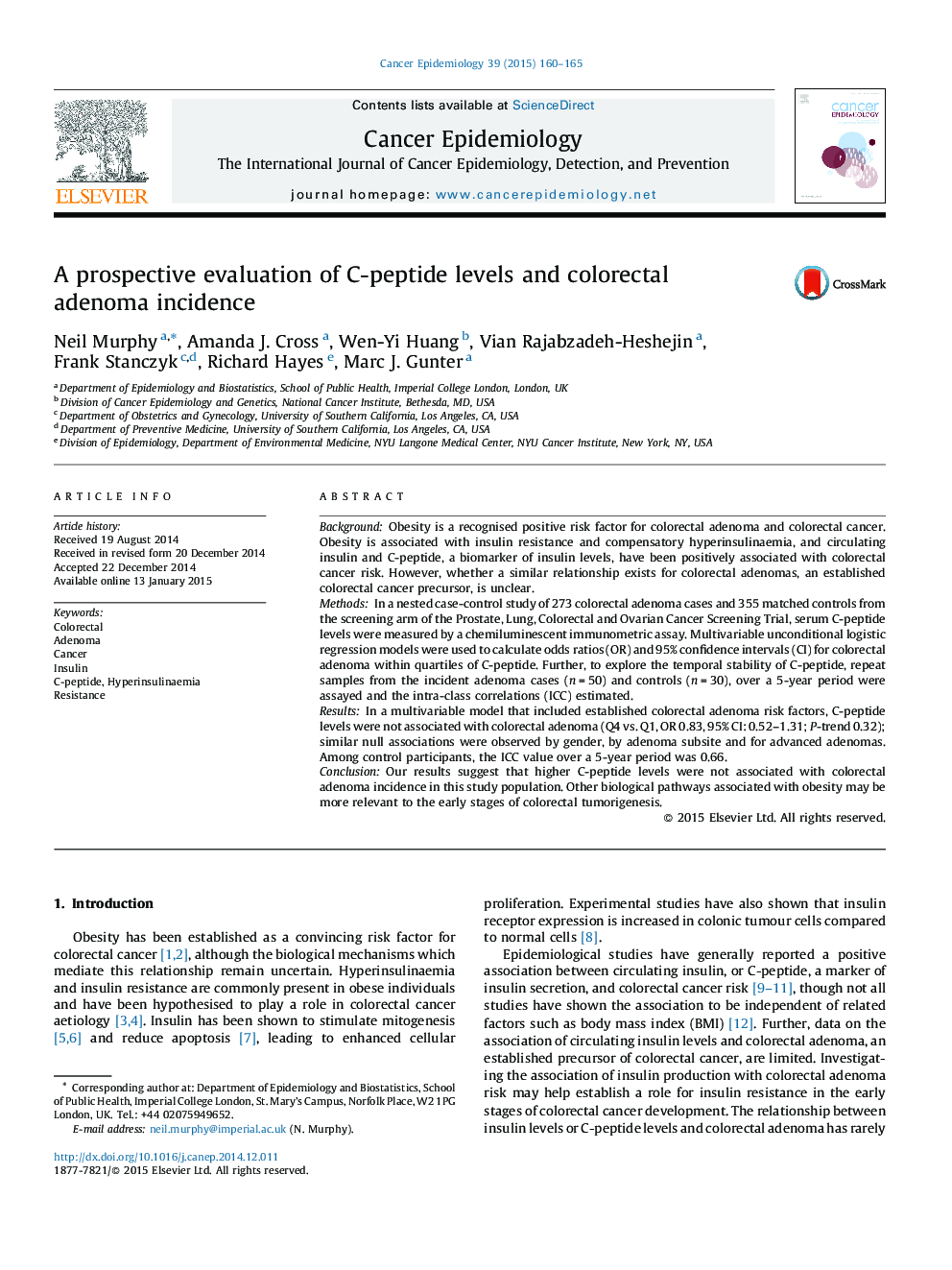| Article ID | Journal | Published Year | Pages | File Type |
|---|---|---|---|---|
| 2108883 | Cancer Epidemiology | 2015 | 6 Pages |
•Higher insulin levels have been associated with greater colorectal cancer risk.•Whether insulin is similarly related to colorectal adenomas (colorectal cancer precursors) is unclear.•We prospectively examined the relationship between C-peptide levels (a marker of insulin) and colorectal adenoma.•No relationship between C-peptide and colorectal adenoma was observed.•Our results suggest that non-insulin related molecular pathways may be more relevant to early stages of colorectal tumorigenesis.
BackgroundObesity is a recognised positive risk factor for colorectal adenoma and colorectal cancer. Obesity is associated with insulin resistance and compensatory hyperinsulinaemia, and circulating insulin and C-peptide, a biomarker of insulin levels, have been positively associated with colorectal cancer risk. However, whether a similar relationship exists for colorectal adenomas, an established colorectal cancer precursor, is unclear.MethodsIn a nested case-control study of 273 colorectal adenoma cases and 355 matched controls from the screening arm of the Prostate, Lung, Colorectal and Ovarian Cancer Screening Trial, serum C-peptide levels were measured by a chemiluminescent immunometric assay. Multivariable unconditional logistic regression models were used to calculate odds ratios (OR) and 95% confidence intervals (CI) for colorectal adenoma within quartiles of C-peptide. Further, to explore the temporal stability of C-peptide, repeat samples from the incident adenoma cases (n = 50) and controls (n = 30), over a 5-year period were assayed and the intra-class correlations (ICC) estimated.ResultsIn a multivariable model that included established colorectal adenoma risk factors, C-peptide levels were not associated with colorectal adenoma (Q4 vs. Q1, OR 0.83, 95% CI: 0.52–1.31; P-trend 0.32); similar null associations were observed by gender, by adenoma subsite and for advanced adenomas. Among control participants, the ICC value over a 5-year period was 0.66.ConclusionOur results suggest that higher C-peptide levels were not associated with colorectal adenoma incidence in this study population. Other biological pathways associated with obesity may be more relevant to the early stages of colorectal tumorigenesis.
